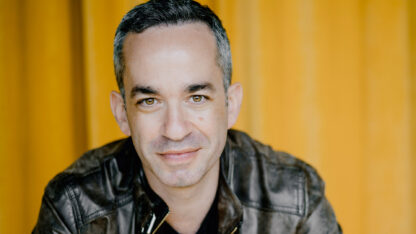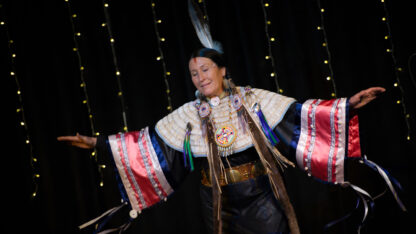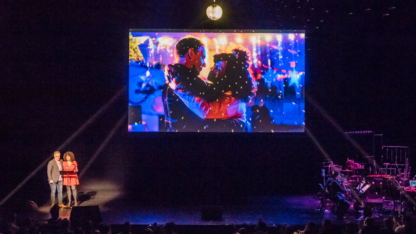The Rialto Center for the Arts’ “Season of Power and Spirit” at Georgia State University is underway, with an array of artists from many cultural backgrounds. Among the notable performers will be the female a cappella quintet from Zimbabwe, Nobuntu, whose style spans a range of music from traditional Zimbabwean songs, to afro-jazz, to gospel. To speak more about the group and their upcoming performance, two members, Duduzile and Joyline Sibanda, joined “City Lights” Lois Reitzes via Zoom.
Interview highlights:
On the meaning of “Nobuntu” and their philosophy of music:
“Nobunto means ‘mother of humanity,'” said Joyline. “We come from Bulawayo, the second largest city in Zimbabwe, and the language that’s mostly spoken that dominates is Ndebele. So, in Ndebele, ‘no’ stands for ‘mother,’ and ‘ubuntu’ is an umbrella term for everything that’s good. Love, peace, forgiveness and everything that a woman or a mother embraces. So we decided to call ourselves ‘the mothers of ubuntu.'”
“‘Cula’ means ‘sing.’ So in this song we are saying, ‘Sing when you are sad. Sing when you are happy. Sing when you’re confused. Any time, because music gives you peace and music brings love and everything in life, anyone, music connects people,” Joyline said. “You can listen or sing to music any day, any time, whether you are in the office, whether you are at work, whether you are in the army, whether you are at war … music always brings you peace in your heart.”
A self-managed, world-traveling family ensemble:
“My role in the group, I’m a vocalist, I’m a songwriter. I do finance sometimes, like, we rotate the duties each and every year. Everybody has their own duty — you know, production, traveling and stuff. All those things that we have to do. So we give each other duties and we rotate duties,” explained Joyline.
Duduzile added, “When we started, we had no clue howsoever how to handle ourselves as Nobuntu. We were touring all over the world and doing everything. In order to learn how to manage ourselves, we decided to give each other roles in the group as per our strength. So as Joyline highlighted, she mostly does finance. That’s where her strength is. She knows how to handle finance, and I do most of the talking with journalists. I’m also a vocalist, which is my main job at Nobuntu, but I also do publicity … In a nutshell, we mostly manage ourselves and we do the work as well.”
Inspired by a love for traditional Zimbabwean song and culture:
“Our sound is rooted mostly on our tradition, our traditional music, of which most of it is still undiscovered. But we know that it’s been passed to us from generation to generation,” said Duduzile. We have Shona origins, Heather [Dube] and Zanele [Manhenga] from the Shona tribe, and the rest of us are from the Ndebele tribe. So we have a fusion of both those traditions alongside with other tribes that come from the Matabeleland region where we come from in Zimbabwe. So our sound is mostly traditional music … and new compositions that we’ve composed over the years. But we are inspired more by our traditional music.”
“Something that I always say to people and preach about where we come from, is that we know ourselves. Identity is very, very important where we come from,” Duduzile said. “You have to know who your forefathers are, what your lineage is, and your ancestors and how you came about so that you can be able to put yourself out there in the world like we are doing … It’s something that comes easily to us, because it’s been passed down to us orally from generation to generation. So what we are simply doing is taking it out of Zimbabwe, Africa, to the world.”
Nobuntu will perform Oct. 15 at the Rialto Center for the Arts. Tickets and more information are available here.









